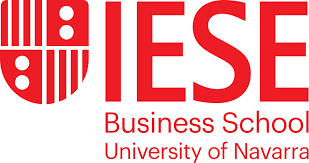Purpose Driven Organisations
Better Organisations
Purpose Driven Organisations
Thursday, 17th November 2022
When I was a child, I admired those who were in business. From the glamorous to the mundane, I loved how companies did so many good things for people. They made movies and videogames but also cars, highways, furniture, clothing, toys, etc. I thought working in companies that provided such essential products and services should be very interesting places to play a part in creating a better society. Years after, I enrolled in business administration studies but what I encountered was profoundly disappointing. Everything I learned was about statistics and theories regarding market forces, profitability, competitiveness, productivity, money, and power. In this world, people were merely resources, objects, regarded all too often as fungible.
One day, my professor of strategy wrote a quote on the blackboard that made a lasting impression on me. It was from a Nobel Prize economist, and it said: “The only purpose of a company is to maximize shareholder profit.” Outraged, I raised my hand and said: “Do you really think I am going to dedicate my professional life solely to make money for shareholders?” He responded indignantly, “Are you a communist?” To which I replied: “No, I am not a communist, but I think I have made the wrong career choice!”
A few months later, I graduated and decided to forget all about the business world. I was deeply upset with myself, thinking that I had wasted the last few years of my life studying things that had nothing to do with me. I felt completely lost.
I grabbed a backpack and headed off to India.
Shortly after arriving, I located a Tibetan refugee camp where I stayed and became friends with a Buddhist monk. We spent long hours meditating and chatting about our inner self. I traveled through India, rode elephants, visited villages and towns, and temples of many religions and tribes. I was filling my backpack with unique experiences full of life.
One day, while chatting on the meaning of life with a National Geographic journalist, I learned of Kalighat, a Hindu temple in the city of Calcutta dedicated to Kali, the goddess of death. Years ago, the temple was donated to the Missionaries of Charity and, since then, it had become a home for the homeless and terminally ill. My friend encouraged me to visit Kalighat and said: “if you want to understand the meaning of life, you must first face the meaning of death”.
Two days later I got on a train to Calcutta. When I arrived at the house of the Missionaries of Charity, I found the nuns silently meditating in the chapel. I stayed outside, peeking in to not disturb them. One of the nuns who was sitting on the floor near the door gestured for me to sit next to her so I went in and sat down. When I looked closely, I could not believe my eyes. It was Mother Teresa of Calcutta!
It was a moment that’s hard to put into words. Needless to say, I never imagined I would even get to see her. And there I was, sitting silently by one of the most admired people in the world at the time. At the end of the meditation session, Mother brought me to the patio next to the chapel and after some conversation, I said to her: “Mother, I want to go to Kalighat”. She looked at me profoundly with an expression that is hard to describe and said: “You can go to Kalighat but every morning before leaving, you must come here and do an hour of meditation.” She was so right.
When I arrived in Kalighat I was asked to take care of an infirm Hindu man who hadn't had a family near him or a roof over his head his entire life. They said to me: “You will be his family, his father, his mother, his brother”. And so that is what I became. Every day I meditated with Mother Teresa for an hour and the rest of the day I spent my time caring for this Hindu man. I washed him, I fed him, I cut his hair and nails, I recited Hindu verses to him and I sang songs to him but most of the time I just sat next to him holding his hand. They were unforgettable days in which I paradoxically felt extremely happy.
Until finally, fate struck. The man whom I had come to love like a brother died in my arms. I felt my soul crying out. All the injustice of the world was upon me. Nothing made sense. After three months in India, where I came to find meaning, I felt like I had found none at all. That night, I laid awake searching for answers.
The next morning, I again sat next to Mother Teresa for meditation, but I was devastated. Even with the best meditation techniques from my friend the Buddhist monk, I could not stay focused.
At the end of the hour of silence, Mother Teresa, as though she had read my mind, invited me again onto the patio next to the chapel. It was only five or so minutes, but her message has stayed with me forever: “Put love into everything you do”.
That was the end of my trip.
That day I came to understand with an extraordinary clarity that everything I had studied about market forces, competitiveness, profit, power, those things I had once dismissed, now had a very different meaning to me. That phrase, which came from the lips of Mother Teresa, a most humble person, who spent her life working for the poorest of the poor, is the essence of everything written in my book, Purpose Driven Organisations.
That phrase describes the golden rule of becoming a purpose-driven organization: No matter what you do, make sure to put love into everything you do.

